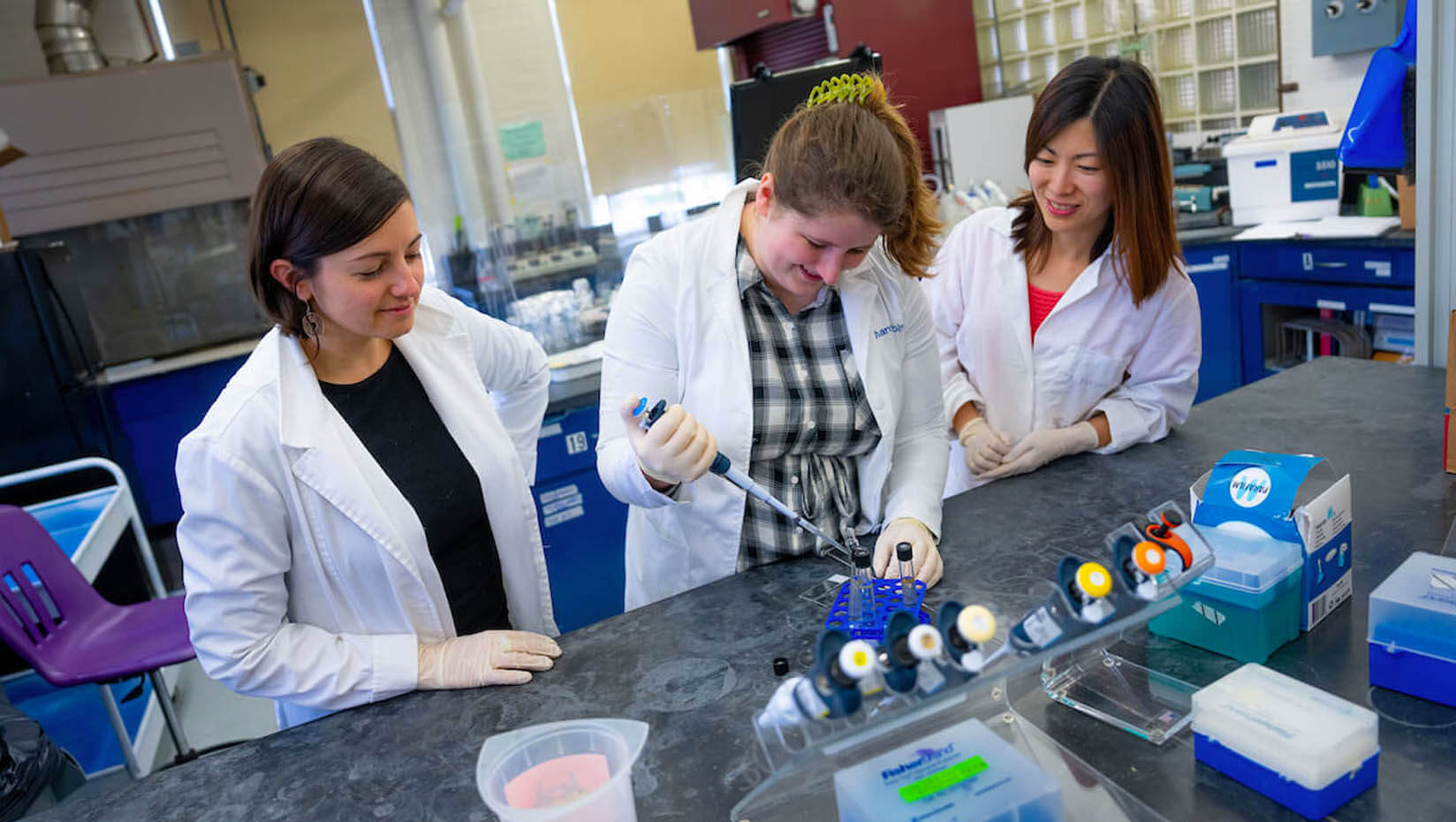
UMaine researchers studying whether broccoli sprouts can help prevent and treat inflammatory bowel disease
University of Maine researchers and their colleagues are investigating whether broccoli sprouts can help prevent and treat inflammatory bowel disease in humans.
Through multiple studies, Yanyan Li, assistant professor of human nutrition; Sue Ishaq, assistant professor of animal and veterinary sciences; and researchers from other institutions will explore how human gut microbes could use a compound from broccoli sprouts to generate a new one that prevents and reduces inflammation.
Previous research from Li and others found that when mice ate steamed broccoli sprouts, the microbes in their gastrointestinal tracts — in particular those in the colon — used the sprouts to create anti-inflammatory compounds that prevented and treated colitis, a type of inflammatory bowel disease, and an infliction similar to Crohn’s disease in humans.
In one study, Li and Ishaq will conduct diet trials over 18 months to determine if the microbes in healthy humans’ colons will produce more anti-inflammatory compounds — ones that could help prevent inflammatory bowel disease — when fed steamed broccoli sprouts. The Allen Foundation provided a $114,359 grant to support the research.
Li also is participating in research led by University of Michigan Medical School researcher Grace Chen to determine if steamed broccoli sprouts can help people who already have ulcerative colitis, how that would change their gut microbes and inflammation status, and how many servings would be needed to produce positive results.
For the study, supported by an $800,000 award from the U.S. Department of Agriculture National Institute of Food and Agriculture, Chen, Li and Duxin Sun, also a Michigan Medicine faculty member, will conduct clinical trials in which they incorporate broccoli sprouts in their participants’ existing diets; measure the anti-inflammatory compounds and changes in their gut microbes; and evaluate the effects on peoples’ conditions.
“Broccoli sprouts contain a uniquely abundant group of compounds, and they can get activated into anti-inflammatory compounds by certain enzymes. Some recent studies have shown that mammalian gut microbes may be able to produce these enzymes to carry out the bioactivation,” Li says. “We wanted to see if broccoli sprout feeding in humans can change gut microbes and result in production of more anti-inflammatory compounds. These studies will provide useful information for us to develop dietary approaches for prevention and management of inflammatory bowel disease.”
In addition to holding human trials, Ishaq and Li will conduct a study funded by a $436,046 grant from the National Institute of Health/National Institute of Diabetes and Digestive and Kidney Diseases (NIH/NIDDK) to explore how different preparations and concentrations of broccoli sprouts affect the ability of gut microbes in mice to prevent and mitigate inflammatory bowel disease.
This study will explore several research questions in depth, such as where along the gastrointestinal tract these microbes are located, if that location matters to the microbes and whether people can benefit from the impact of those microbes situated there. They will also look at whether the age of mice matters. The results from this study could help them and other scientists devise more effective diet- and microbe-based prevention measures in humans and treatment for those infected with the disease.
Three graduate students from Ishaq’s and Li’s labs will assist in their NIH-backed study. They also plan to recruit more graduate students and undergraduates for their research.
“As a graduate student at the University of Maine, my goal is to acquire a diverse background of skills in order to ensure the quality of my work as a researcher, and open as many opportunities as possible when I graduate,” says Johanna Holman, a Ph.D. student of human nutrition. “This study will be a great opportunity to advance a number of skills both in the laboratory and in working with human subjects!”
These studies build on years of individual and collaborative research into the correlation between nutrition, gut microbiota and inflammation by Li, Ishaq and their colleagues from the University of Michigan, Husson University, the University of Vermont and the State University of New York at Binghamton.
The cause for inflammatory bowel disease remains unknown, but the prevailing theory involves a disruption of the connection between gut microbes and the immune system due to genetic and environmental forces. Li and Ishaq also say a growing body of evidence from them and other scientists indicate that “gut microbiota have significant impact on human health and thus impact susceptibility to disease, such as inflammatory bowel disease.”
“There is so much about nutrition, gut microbes and health that researchers are still trying to understand. Being able to run multiple projects together, and work with researchers in different specializations, is an enormous help to tease apart the complicated process by which these microbes could be used to promote health,” Ishaq says.
Contact: Marcus Wolf, 207.581.3721; marcus.wolf@maine.edu
